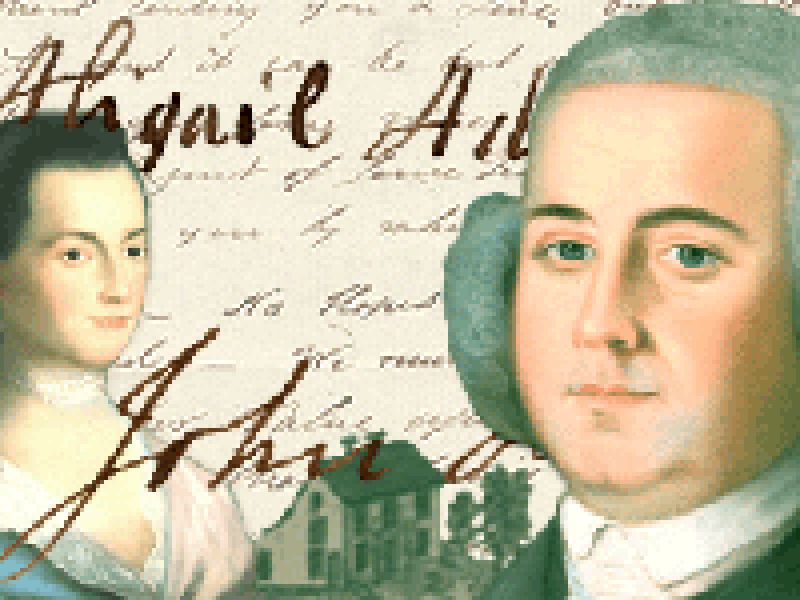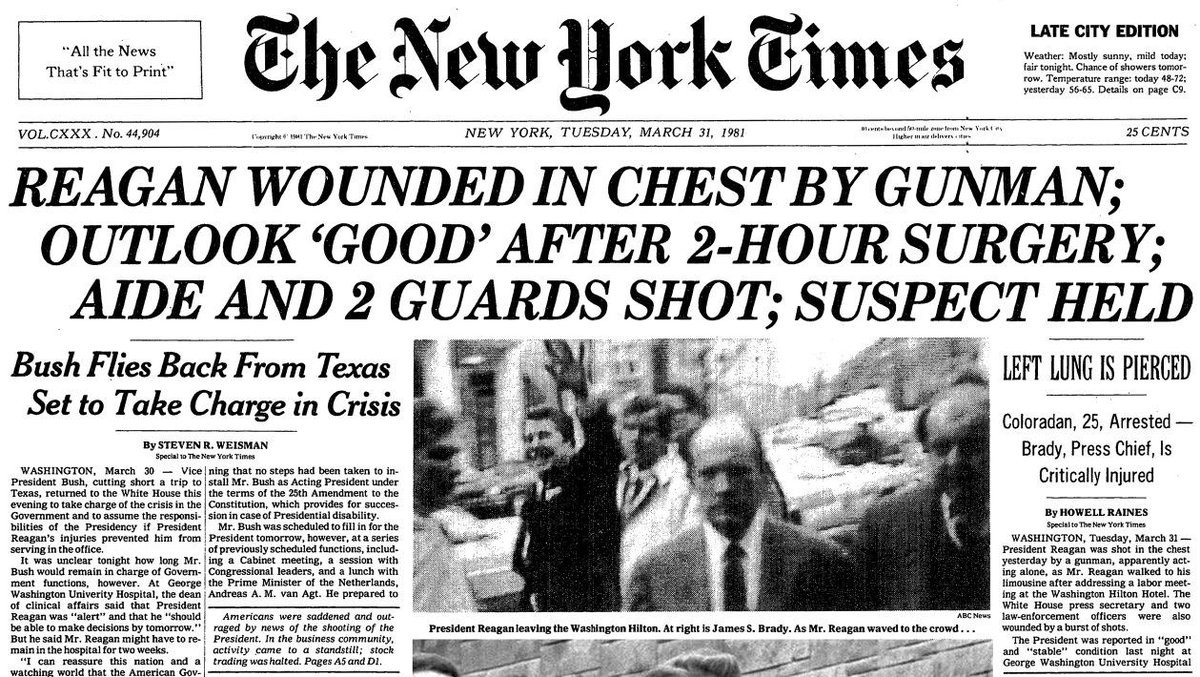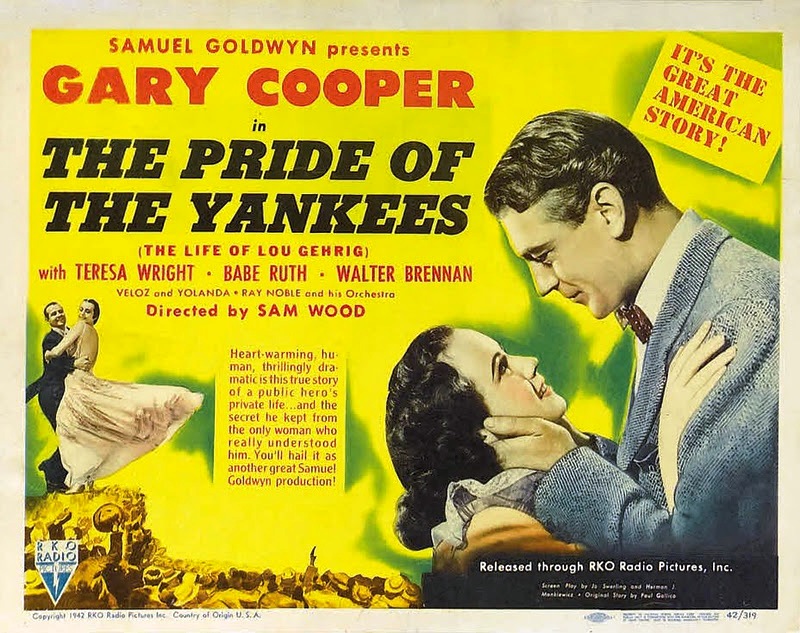"Freedom is never more than one generation away from extinction. We didn't pass it to our children in the bloodstream. It must be fought for, protected, and handed on for them to do the same, or one day we will spend our sunset years telling our children and our children's children what it was once like in the United States where men were free." - President Ronald Reagan
Monday, March 31, 2025
The week in review with Bill Katz the editor of Urgent Agenda
The week in review with Bill Katz the editor of Urgent Agenda
Guest: Bill Katz the editor of Urgent Agenda...US in the Middle East, Musk-Tesla crazy, Trump and tariffs this week, The NY Times and Democrats, Trump approvals, NPR and the CEO who can't remember, Happy # 91 Shirley Jones plus other stories.....
The U.S. Navy on the border
My guess is that the crew of the USS Gravely will do whatever they normally do. I don't see any attacks on fentanyl plants anytime soon. Nevertheless, it shows just how sensitive all this is.
— Silvio Canto. Jr. (@silvio_canto) March 31, 2025
The U.S. Navy on the border - American Thinker https://t.co/bQKW0R8wTd
Everybody’s talking in the Mexican news media about U.S. warships navigating close to Mexico. The ships are travelling in international waters, but it raises all kind of speculation south of the border about a U.S. attack. Here is the story:
According to a spokesperson from the U.S. Department of Defense, the United States has sent a missile destroyer, the USS Gravely, to the Gulf of Mexico to bolster its border security operations and prevent drug trafficking from Mexico to the United States.
“It’s vital for the United States to control not only our land border but also our territorial waters. This deployment directly supports U.S. Northern Command’s mission to protect our sovereignty,” Pentagon spokesman Sean Parnell said on Monday, March 17, referencing the ongoing U.S. initiative to curb illegal immigration at the U.S.-Mexico border.
The destroyer, which was recently stationed in the Red Sea to combat Houthi rebels, will reportedly support the U.S. Coast Guard on its anti-narcotics missions in the area.
Its duties include “maritime-related terrorism, weapons proliferation, transnational crime, piracy, environmental destruction, and illegal seaborne immigration,” detailed the Pentagon.
“The USS Gravely will be deployed to the Gulf of Mexico and surrounding areas participating in the mission of interdicting drugs and other things headed to our country,” General Alexus G. Grynkewich said Monday.
“It will work closely with the U.S. Coast Guard, and of course, we won’t share their maneuver plan, but know that this is the mission they’ll be deployed for. We’ll see what they can do,” added Grynkewich.
Well, I guess we’d call it Gulf of America and they call it Gulf of Mexico.
Maybe the Trump administration is sending a message. Your guess is as good as mine, but I’m sure that we can use more efficient sources to track cartel activity from satellites, drones, or human contacts.
As we see in Canada, President Trump’s tariffs have sparked a nationalist reaction. They’re ready to fight up there but someone should remind them that this is real trade war, not a hockey game.
As with Canada, President Trump has exposed vulnerabilities in the Mexican economy. Too much dependence on U.S. trade and remittances. Mexico has overprotected its agricultural and energy sectors. It means that they have to send their crude oil to Houston so that it gets refined into gasoline. Yes, it’s true and Mexicans get really angry when they hear that. It’s another demonstration of how inefficient PEMEX is, and they know it.
My guess is that the crew of the USS Gravely will do whatever they normally do. I don’t see any attacks on fentanyl plants anytime soon. Nevertheless, it shows just how sensitive all this is.
P.S. Check out my blog for posts, podcasts and videos.
Happy # 91 Shirley Jones

We say happy birthday to Shirley Jones who was born in Pennsylvania on this day in 1934.
She appeared in lots of films, from "Oklahoma" to "The music man". I guess that most of us remember her as the mom in "The Partridge Family".
1889: The Eiffel Tower opened to the public
The legendary Eiffel Tower of Paris opened to the public on this day in 1889. It is one of the many landmarks of this great city.
Happy # 90 Herb Alpert
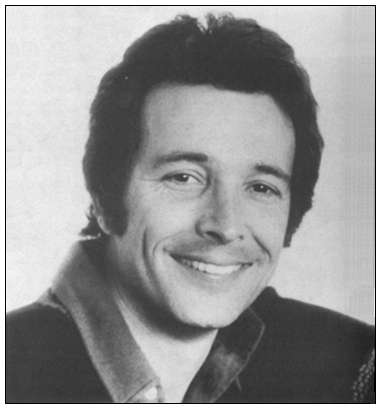
In the early 1960's, Herb Alpert hit the charts with The Tijuana Brass. His career included number one hits & many albums that charted on Billboard. They also won 8 Grammy's and sold 70 million albums around the world.
Alpert is also the only artist to hit # 1 with an instrumental "Rise" in 1979 and as a vocalist with “This guy's in love with you" in 1968.
Not bad for a guy whose first hit was "The lonely bull"!
March 1969: Remembering "Odessa" by The Bee Gees!

1776: Abigail wrote a letter to John Adams
“I long to hear that you have declared an independency. And, by the way, in the new code of laws which I suppose it will be necessary for you to make, I desire you would remember the ladies and be more generous and favorable to them than your ancestors. Do not put such unlimited power into the hands of the husbands. Remember, all men would be tyrants if they could. If particular care and attention is not paid to the ladies, we are determined to foment a rebellion, and will not hold ourselves bound by any laws in which we have no voice or representation.”
The two documentaries tell us about President and First Lady Abigail Adams, perhaps the greatest couple of the early days of the nation.
In 2007, the "John Adams" HBO series added more to the wonderful story of our second president and his First Lady.
The amazing 1,160 letters written by John and Abigail Adams
We remember John Adams as one of The Founding Fathers, first Vice President and second president (1797-1801). We remember Abigail Adams as one of the amazing women of her time. They were married October 25, 1764.
We also emember them for their amazing letters. They told us about the struggles of the young nation as well as their incredible love for each other.
The letters are a treasure. Historians have relied on them to learn a great deal about those early days of the country.
P.S. You can listen to my show. If you like our posts, please look for ”Donate” on the right column of the blog page.
We remember The 1962 Cuban Missile Crisis with Barry Jacobsen
Guest: Barry Jacobsen, military historian and blogger, joins us for a look at the national security stories of the week..........the Benghazi hearings expose some of Secretary Clinton's management style.......the Russian military operations in the Middle East............the US rescues Iraqi soldiers from a POW camp..........we look back at the 1962 Cuban Missile Crisis.........the US and USSR over Cuba............and other stories from the week.....
Sunday, March 30, 2025
The latest on US-Mexico issues with Allan Wall, blogger...
We remember those who served in Vietnam
We remember those who served in Vietnam - American Thinker https://t.co/Z588BpBojw
— Silvio Canto. Jr. (@silvio_canto) March 30, 2025
At a church Friday fish fry, I had the chance to chat with a couple of fellow parishioners. One was a Vietnam veteran and the other the grandson of a Vietnamese military man who managed to escape after 1975. It took me back to a time when Vietnam was all we talked about.
It’s hard to believe, but U.S. troops left Vietnam in 1973, or 52 years ago this week. It ended a war that began when President Kennedy sent some advisers, was later escalated under President Johnson to 500,000 troops, and finally was ended by President Nixon.
As you may know, the parties signed a ceasefire in January 1973. It followed the famous Christmas bombing, when President Nixon forced the communists to sign the agreement. We called it “Operation Linebacker,” and it was effective. The bombing missions were so good that the communists were shortly begging for a paper to sign.
Twenty-seven months later, or May 1, 1975, the North walked into Saigon, and we’ve known it as Ho Chi Minh City ever since.
Did it have to turn out that way?
President Nixon did not think so. He wrote about it in No More Vietnams, a book that gets better with age. The point is that we choose to win wars or lose them, the latter of which we did in Vietnam. To win would not have required a single soldier — just a few B-52s to remind the North that we meant to enforce the ceasefire. We should remember that North Vietnam was devastated in 1973.
The tragedy of Vietnam is that the USSR could not believe that we had let South Vietnam collapse in 1975, as Stephen J. Morris wrote on the 30th anniversary of the disintegration of Saigon:
If the United States had provided that level of support in 1975, when South Vietnam collapsed in the face of another North Vietnamese offensive, the outcome might have been at least the same as in 1972.
But intense lobbying of Congress by the antiwar movement, especially in the context of the Watergate scandal, helped to drive cutbacks of American aid in 1974.
Combined with the impact of the world oil crisis and inflation of 1973-74, the results were devastating for the south.As the triumphant North Vietnamese commander, Gen. Van Tien Dung, wrote later, President Nguyen Van Thieu of South Vietnam was forced to fight “a poor man’s war.”
Even Hanoi’s main patron, the Soviet Union, was convinced that a North Vietnamese military victory was highly unlikely.
Evidence from Soviet Communist Party archives suggests that, until 1974, Soviet military intelligence analysts and diplomats never believed that the North Vietnamese would be victorious on the battlefield. Only political and diplomatic efforts could succeed.
Moscow thought that the South Vietnamese government was strong enough to defend itself with a continuation of American logistical support.
The former Soviet chargé d’affaires in Hanoi during the 1970’s told me in Moscow in late 1993 that if one looked at the balance of forces, one could not predict that the South would be defeated.Until 1975, Moscow was not only impressed by American military power and political will, it also clearly had no desire to go to war with the United States over Vietnam.
But after 1975, Soviet fear of the United States dissipated.
No kidding that fear of the U.S. dissipated.
The post-Vietnam years contributed to the perception that the U.S. was weak and unwilling to defend its interests. From Nicaragua to Iran to the Soviets in Afghanistan and Cuban troops in Africa, it was a time of U.S. weakness. Thankfully, it ended with the Reagan presidency, and the good guys were on top again.
Yes, there were many mistakes in Vietnam, from using the Gulf of Tonkin resolution to send 500,000 soldiers to war to not fighting to win. I believe that the biggest mistake was not preserving our gains, or a South Vietnam that would have looked a lot like South Korea today. Again, it could have turned out very different, especially for the many who served in Vietnam. They won the battles, and the politicians lost the peace.
Let’s remember again all of those who served and the ones who died. They were the heroes.
PS: Check out my blog for posts, podcasts, and videos.
Happy # 80 Eric Clapton

Eric Clapton is one of the best "rock guitarists" ever! He was born on this day in 1945.
Clapton's career goes back to The Yardbirds, Cream, and his own solo work.
My favorite Clapton guitar performance is "White Room" recorded by Cream, i.e. Clapton, Ginger Baker & Jack Bruce. According to Songfacts, Eric Clapton used a Wah-Wah pedal on his guitar. It was great.
March 30, 1981: President Reagan was shot!
“Honey, I forgot to duck” (The President’s words to the First Lady)”Please tell me you’re Republicans.” (The President greets the surgeons)
The Texas report with George Rodriguez, South Texas conservative
The world today reminds us of the post-Vietnam era
(My new American Thinker post)
Twenty-seven months later, or on May 1, 1975, the North walked into Saigon, and we’ve known it as Ho Chi Minh City ever since.
We remember those who served in Vietnam, 1961-73
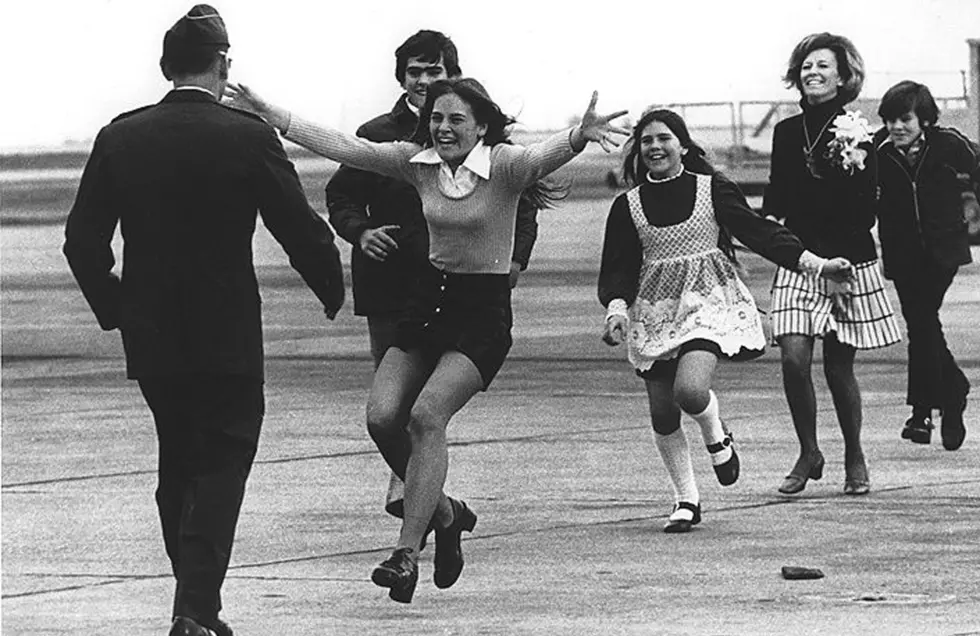
It ended a war that began when President Kennedy sent some advisers, was later escalated under President Johnson to 500,000 troops and finally ended by President Nixon.
As you may know, the parties signed a cease fire in January 1973. It followed the "famous Christmas bombing" when President Nixon forced the communists to sign the agreement. We called it "Operation Linebacker" and it was effective. The bombing missions were so good that the communists were shortly begging for a paper to sign.
Twenty-seven months later, or May 1, 1975, the North walked into Saigon, and we’ve known it as Ho Chi Minh City ever since.
Did it have to turn out that way?
President Nixon did not think so. He wrote about it in No More Vietnams, a book that gets better with age. The point is that we choose to win wars or lose them, the latter of which we did in Vietnam. To win would not have required a single soldier – just a few B-52s to remind the North that we meant to enforce the ceasefire. We should remember that North Vietnam was devastated in 1973.
The tragedy of Vietnam is that the USSR could not believe that we let South Vietnam collapse in 1975, as Stephen J. Morris wrote on the 30th anniversary of the disintegration of Saigon:
If the United States had provided that level of support in 1975, when South Vietnam collapsed in the face of another North Vietnamese offensive, the outcome might have been at least the same as in 1972.
But intense lobbying of Congress by the antiwar movement, especially in the context of the Watergate scandal, helped to drive cutbacks of American aid in 1974.
Combined with the impact of the world oil crisis and inflation of 1973-74, the results were devastating for the south.
As the triumphant North Vietnamese commander, Gen. Van Tien Dung, wrote later, President Nguyen Van Thieu of South Vietnam was forced to fight “a poor man’s war.”
Even Hanoi’s main patron, the Soviet Union, was convinced that a North Vietnamese military victory was highly unlikely.No kidding that fear of the U.S. dissipated.
Evidence from Soviet Communist Party archives suggests that, until 1974, Soviet military intelligence analysts and diplomats never believed that the North Vietnamese would be victorious on the battlefield. Only political and diplomatic efforts could succeed.
Moscow thought that the South Vietnamese government was strong enough to defend itself with a continuation of American logistical support.
The former Soviet chargé d’affaires in Hanoi during the 1970’s told me in Moscow in late 1993 that if one looked at the balance of forces, one could not predict that the South would be defeated.
Until 1975, Moscow was not only impressed by American military power and political will, it also clearly had no desire to go to war with the United States over Vietnam.
But after 1975, Soviet fear of the United States dissipated.
The post-Vietnam years contributed to the perception that the U.S. was weak and unwilling to defend its interests. From Nicaragua to Iran to the Soviets in Afghanistan and Cuban troops in Africa, it was a time of U.S. weakness.
Thankfully, it ended with the Reagan presidency.
Yes, there were many mistakes in Vietnam, from using the Gulf of Tonkin resolution to send 500,000 soldiers to war to not fighting to win.
I believe that the biggest mistake was not preserving our gains, or a South Vietnam that would have looked a lot like South Korea today.
Again, it could have turned out very different, especially for the many who served in Vietnam. They won the battles, and the politicians lost the peace.
This is President Nixon's book and for some of the young people who don't remember.
Saturday, March 29, 2025
The Texas report with George Rodriguez, South Texas conservative
If they only had knife control....
If they only had knife control.... - American Thinker https://t.co/Ub2ICuXwK6
— Silvio Canto. Jr. (@silvio_canto) March 29, 2025
We remember Astrud Gilberto. (1940-2022)
Happy birthday Astrud Gilberto.....she was born in Salvador, Brazil. We remember her version of "The girl from Ipanema". She died in June 2023.
P.S. You can listen to my show. If you like our posts, please look for ”Donate” on the right column of the blog page.
The amazing Cy Young was born on this day in 1867
Young won 511 games, completed 749 with a 2.63 ERA.
One of his better seasons was 1892: 36-12 with a 1.93 ERA, 453 innings pitched and 48 complete games!
Of course, his name is now synonymous with great pitching. The Cy Young Award is given each year to the best pitcher in the AL and NL.
P.S. You can listen to my show (Canto Talk) .
Successful Cuban American businesswomen in the US
Friday, March 28, 2025
60 days of Trump with Barry Casselman, The Prairie Editor.
Well excuse me, I don't remember
Well excuse me, I don't remember - American Thinker https://t.co/MikftBNCMV
— Silvio Canto. Jr. (@silvio_canto) March 28, 2025
So long, Baltimore Colts
So long, Baltimore Colts - American Thinker https://t.co/Pn18b0lsoP
— Silvio Canto. Jr. (@silvio_canto) March 27, 2024
Back in the late 1970s and early 1980s, I went to school and started my banking career in Baltimore. The crabs were great, and the city loved its sports teams. Good seafood, a passion for sports, and I was right at home. (As a side note, I do remember the Francis Scott Key Bridge, but not the train that President Biden was talking about.)
Today, the Baltimore Ravens are a successful franchise. They won two Super Bowl championships since the Cleveland Browns moved to Baltimore in 1996. In fact, no one younger than 40 remembers the team that used to play in the old Memorial Stadium on 33rd Street. I remember watching an old Johnny Unitas and then Bert Jones lead a team that won the AFC East three years in a row. Those Colts had the misfortune of losing to the Super Bowl champ, twice the Steelers and then the Raiders. Nevertheless, the Colts were fun to follow.
In the early 1980s, the Orioles were winning, and the Colts were not selling out on Sunday. All of a sudden, there was talk of the team moving, but nobody believed it. The Colts leave Baltimore? You kidding? We have an old-fashioned marching band and a fight song. “It happened in Brooklyn, but never here” was the attitude you heard over crab cakes.
Back in the last week of March 1984, the unthinkable happened, as Brooklyn Dodgers fans said when the team moved to Los Angeles. Jim Irsay, the owner who had bought the team in 1972, had the movers pack up the offices in the morning while the city slept. It was a bit sneaky, to say the least. The moving trucks showed up when the city slept, and the Colts were gone. Here is the story:
Rick Russell was having lunch at the Indianapolis Athletic Club on March 28, 1984, when a phone was brought to his table. It was Johnny B. Smith, Mayflower CEO and chairman. Russell, president of Mayflower’s moving operations, had to return to the office immediately.
The Colts were coming.
Fourteen tractor-trailer trucks were dispatched to the Baltimore Colts facility in Owings Mills, Md. Drivers weren’t told their destination until the next day: The soon-to-be-famous 600-mile trek to Indianapolis.
“It’s probably the most famous sporting move ever,” said Russell, 68 and retired in Longboat Key, Fla.
Back that day in 1984, I was working in Mexico City for a Maryland bank. The phone woke me up at 6 A.M., and I heard from a colleague from the bank. He said, “Did you hear?” I responded, half-asleep, wondering if Mexico had devalued the peso again. He said no, it’s worse than the peso — the Colts are gone.
There was little time for international finance that day. My telex machine was running all day, with colleagues sending me the latest reports. No internet or texts back then, but only expensive long-distance calls and a telex machine that we used to do business with.
Forty years ago today, the news was about the Colts leaving, and nothing else mattered much. The unthinkable happened! And best of all, the bank president did not fire us for running the expensive telex machine all day with Colts news.
PS: Check out my blog for posts, podcasts, and videos.
We remember Vic Raschi (1919-88)
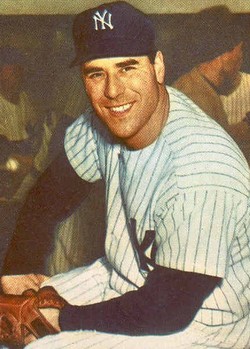
Thursday, March 27, 2025
More NPR and opening day is here
And Big Bird can’t sing
Well, every bird has his time and this bird can’t sing anymore, at least not on airwaves paid for by taxpayers. It looks like the days of NPR and PBS as “public stations” are coming to an end. And I couldn’t be happier.
— Silvio Canto. Jr. (@silvio_canto) March 27, 2025
And Big Bird can’t sing - American Thinker…
We remember David Janssen (1931-80)

We remember David Janssen who was born in Nebraska on this day in 1931. He died in 1980.
Janssen played Dr. Richard Kimble on TV's "The fugitive". It was a series about a man on the run for a murder he didn't commit. It was a great TV show.
1942: The Pride of the Yankees, my favorite baseball movie
What a great movie.
This is the story of Lou Gehrig and I have to watch it every year. You can catch Babe Ruth playing himself.
Gehrig died in 1939 at age 36, a couple of months short of his 37th birthday.
His numbers are legendary: .340 career batting average, 494 HR & 1,995 RBI. Add to this 2,721 hits in 2,164 games PLUS the 2,130 consecutive game streak. Lou played in 7 World Series and was the clean up hitter of the 1927 Yankees!
This is a Hollywood version. However, it depicts Lou correctly. Lou was a gentleman and a team player.
Wednesday, March 26, 2025
The ‘agua’ battle on the border
The ‘agua’ battle on the border - American Thinker https://t.co/QpPGtSUCv6
— Silvio Canto. Jr. (@silvio_canto) March 26, 2025
Happy # 81 Diana Ross
We remember Diana Ross who was born in Detroit on this day in 1944.
Question: Is that possible? I guess that time really does fly by!
We have followed Diana Ross from The Supremes to her solo career.
The Supremes had a bunch of # 1 singles. In the late 1960's, they were one of the most consistent hit makers along with The Beatles. In the 1970's, Diana went solo and the hits kept on coming.
She is a great performer and artist!
Happy # 63 to Kevin Seitzer
Kevin broke with the Royals in 1986 and hit .323 with 207 hits in 1987. He was a very consistent hitter and played first and third base very well.
He retired after 12 seasons: .295 average, 1,557 hits and a couple of All Star selections.
Tags: Kevin Seitzer To share or post to your site, click on "Post Link". Please mention / link to the My View by Silvio Canto, Jr. Thanks!
Tuesday, March 25, 2025
Democrats and their digging
Our friend Ruy Teixeira is back with another message for Democrats. My guess is that they won’t like it. It ain’t pretty, to say the least. Teixeira is telling Democrats that Trump may be underwater in some polls, but they are more like 20,000 leagues under the sea (to…
— Silvio Canto. Jr. (@silvio_canto) March 25, 2025
We remember Aretha Franklin (1942-2018)
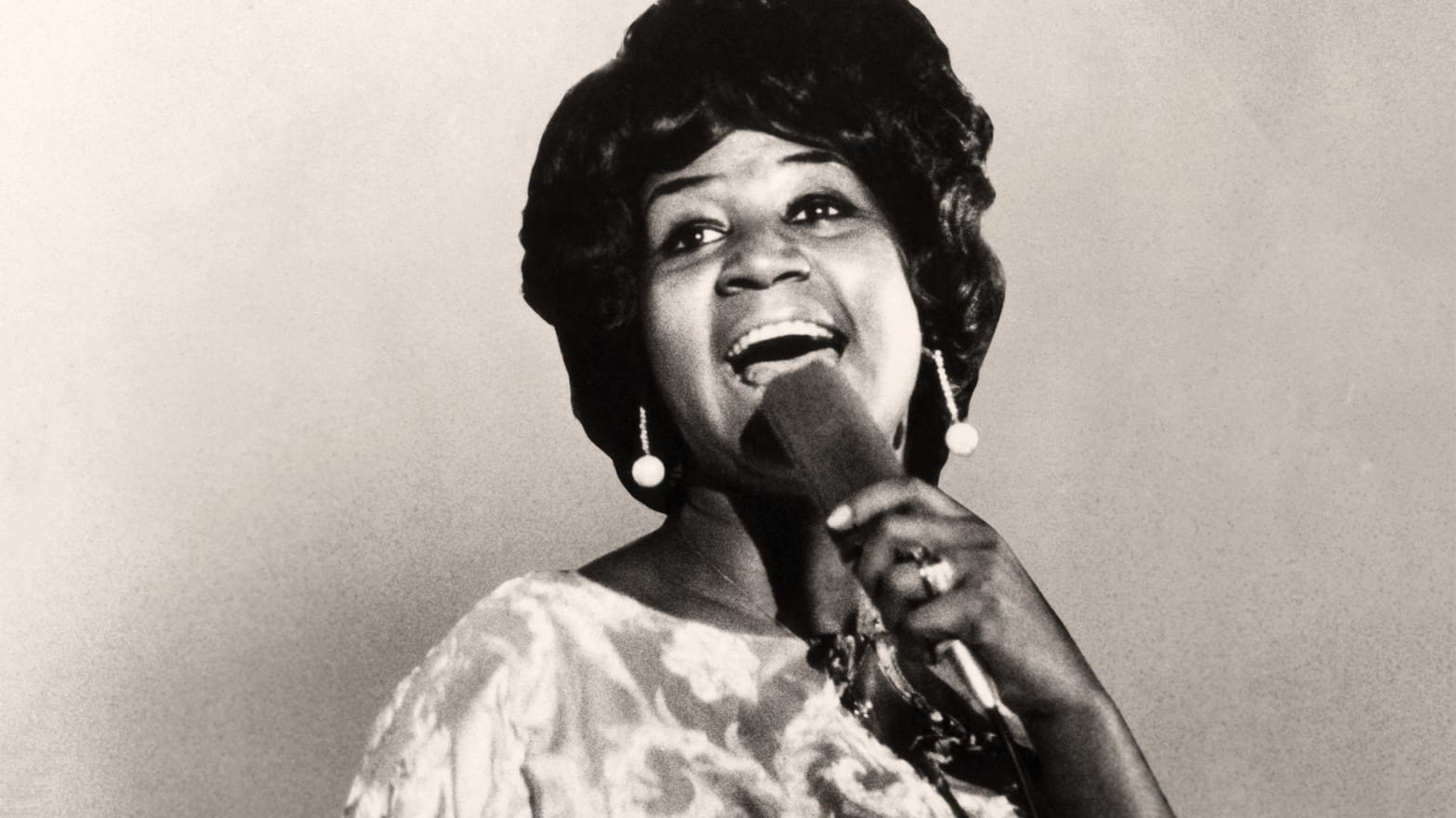
Her father was Baptist preacher Reverend Clarence La Vaughan "C. L." Franklin.
Her mother was Barbara Siggers Franklin, a gospel singer.
In the spring of 1967, Aretha had her first # 1 with "Respect", an Otis Redding song. She had many more hits after that.
In 1987, Aretha became the first female artist to be inducted into the Rock and Roll Hall of Fame.



